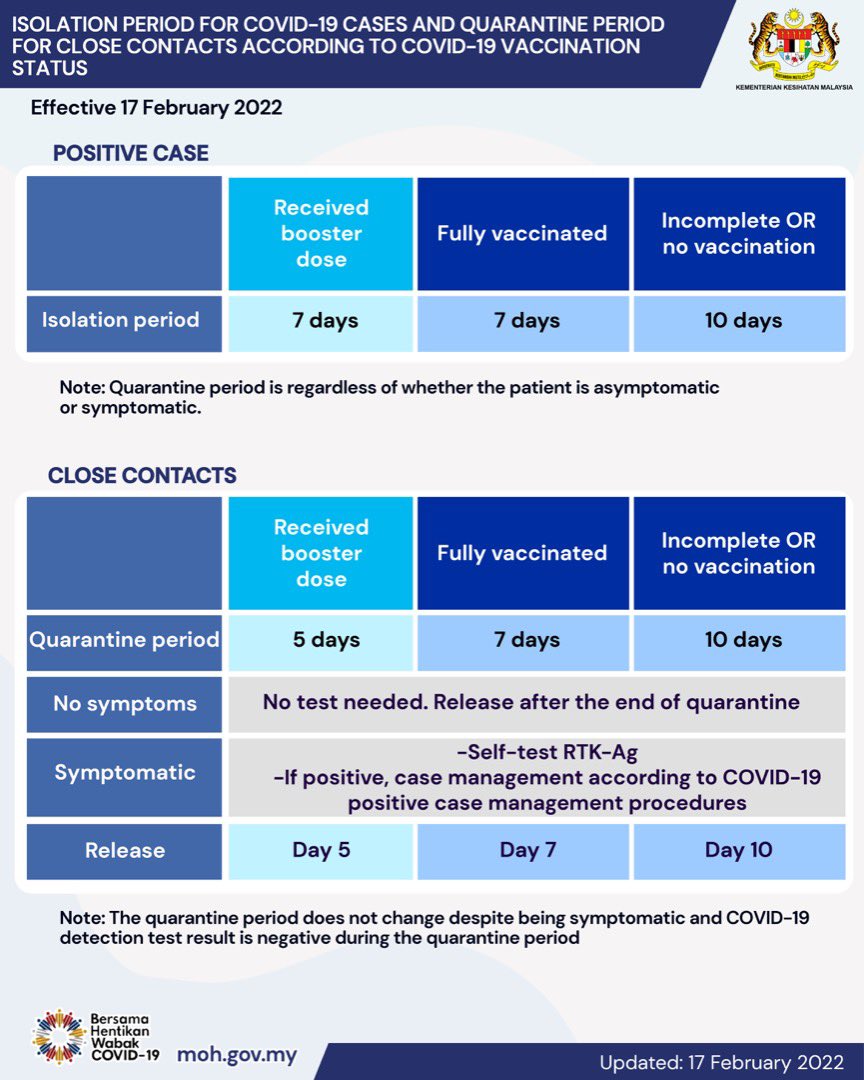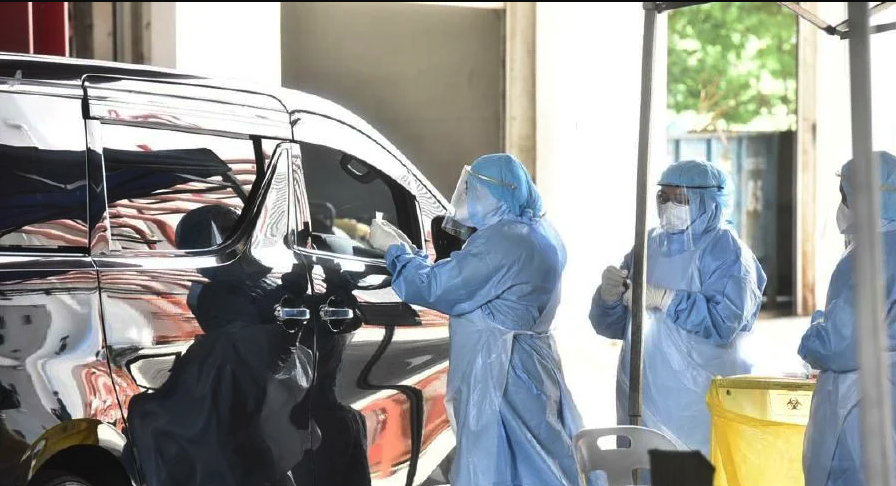What To Do If You're A Close Contact With Someone Who Tested Positive For COVID-19
Even if you don't show any symptoms, it's best to self-monitor.
At this point, there's possibly at least one person you know who has tested positive for COVID-19
The Omicron variant wave has already hit Malaysia and earlier this month, Health Minister Khairy Jamaluddin announced that cases were expected to reach 15,000 a day.
COVID-19 symptoms may appear anytime between two and 14 days after exposure to the virus, and can range from mild to severe illnesses.
These are some symptoms:
– Fever or chills
– Cough
– Shortness of breath or difficulty breathing
– Fatigue
– Muscle or body aches
– Headache
– New onset of confusion (disorientation, delirium, or other similar symptoms)
– New loss of taste or smell
– Sore throat
– Congestion or runny nose
– Nausea or vomiting
– Diarrhoea
I'm a close contact of someone who tested positive for COVID-19. Now what?
If you are exposed and are NOT up-to-date on COVID-19 vaccinations
– Immediately isolate yourself for at least seven to 10 days and monitor for any symptoms. The date of your exposure is considered as day 0.
– If you develop symptoms, get tested immediately, and continue to isolate yourself from others. Take note that it is possible for you to be asymptomatic (not show any symptoms but still test positive).
– Watch for symptoms until day 10 after your last contact with someone with COVID-19.
If you are exposed and ARE up-to-date on COVID-19 vaccinations (vaccinated and boosted)
– Self-quarantine for five days and get tested if you have symptoms at least five days after you've had a close contact with someone who tested positive for COVID-19.
– If you don't develop any symptoms, no test is needed. But continue to self-monitor until the end of your quarantine.
For more details on isolation after close contact, click here.
I tested positive for COVID-19. What do I do?
– Enter your positive test result on MySejahtera.
Serious symptoms
Visit a hospital or a clinical assessment centre (CAC) if you have:
– Trouble breathing
– Persistent pain or pressure in the chest
– Inability to wake or stay awake
– Pale, gray, or blue-colored skin, lips, or nail beds, depending on skin tone
*This is not the full list of symptoms. Contact a medical practitioner if you begin to show any other symptoms that are severe or concerning to you.
Mild symptoms / no symptoms
Self-quarantine for at least seven days from the date you tested positive (even if you have no symptoms), especially if you're living in a home with other people who have a higher risk of getting ill from COVID-19.
Continue to self-monitor via MySejahtera.
If you're above 60 years old with comorbidities and develop moderate to serious symptoms, immediately visit your nearest hospital or CAC.
For a more detailed breakdown on the different categories, click here.
If you've been exposed to the virus, please inform anyone who you were in contact with within that period to curb the spread. Let's continue to fight this together!

